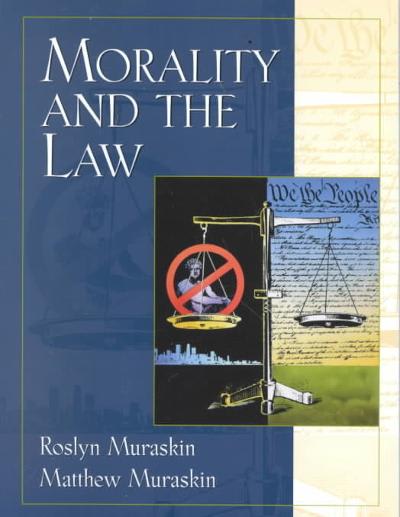Question
1. Sources of Law. This chapter discussed a number of sources of American law. Which source of law takes priority in the following situations, and
1. Sources of Law. This chapter discussed a number of sources of American law. Which source of law takes priority in the following situations, and why? (See Sources of American Law.) (a) A federal statute conflicts with the U.S. Constitution. (b) A federal statute conflicts with a state constitutional provision. (c) A state statute conflicts with the common law of that state. (d) A state constitutional amendment conflicts with the U.S. Constitution.
2. Stare Decisis. In this chapter, we stated that the doctrine of stare decisis "became a cornerstone of the English and American judicial systems." What does stare decisis mean, and why has this doctrine been so fundamental to the development of our legal tradition?
3. Commerce Clause. A Georgia state law requires the use of contoured rear-fender mudguards on trucks and trailers operating within Georgia state lines. The statute further makes it illegal for trucks and trailers to use straight mudguards. In approximately thirty-five other states, straight mudguards are legal. Moreover, in Florida, straight mudguards are explicitly required by law. There is some evidence suggesting that contoured mudguards might be a little safer than straight mudguards. Discuss whether this Georgia statute violates any constitutional provisions.
4. Procedural Due Process. Robert Brown applied for admission to the University of Kansas School of Law. Brown answered "no" to questions on the application asking if he had a criminal history and acknowledged that a false answer constituted "cause for . . . dismissal." In fact, Brown had criminal convictions for domestic battery and driving under the influence. He was accepted for admission to the school. When school officials discovered his history, however, he was notified of their intent to dismiss him and given an opportunity to respond in writing. He demanded a hearing. The officials refused to grant Brown a hearing and then expelled him. Did the school's actions deny Brown due process? Discuss.
5. Freedom of Speech. Wandering Dago, Inc. (WD), operates a food truck in Albany, New York. WD brands itself and the food it sells with language generally viewed as ethnic slurs. Owners Andrea Loguidice and Brandon Snooks, however, view the branding as giving a "nod to their Italian heritage" and "weakening the derogatory force of the slur." Twice, WD applied to participate as a vendor in a summer lunch program in a state-owned plaza. Both times, the New York State Office of General Services (OGS) denied the application because of WD's branding. WD filed a suit in a federal district court against RoAnn Destito, the commissioner of OGS, contending that the agency had violated WD's right to free speech. What principles apply to the government's regulation of the content of speech? How do those principles apply in WD's case? Explain.
6. Business Ethics. Jason Trevor owns a commercial bakery in Blakely, Georgia, that produces a variety of goods sold in grocery stores. Trevor is required by law to perform internal tests on food produced at his plant to check for contamination. On three occasions, the tests of food products containing peanut butter were positive for salmonella contamination. Trevor was not required to report the results to U.S. Food and Drug Administration officials, however, so he did not. Instead, Trevor instructed his employees to simply repeat the tests until the results were negative. Meanwhile, the products that had originally tested positive for salmonella were eventually shipped out to retailers. Five people who ate Trevor's baked goods that year became seriously ill, and one person died from a salmonella infection. Even though Trevor's conduct was legal, was it unethical for him to sell goods that had once tested positive for salmonella? Why or why not?
Step by Step Solution
There are 3 Steps involved in it
Step: 1

Get Instant Access to Expert-Tailored Solutions
See step-by-step solutions with expert insights and AI powered tools for academic success
Step: 2

Step: 3

Ace Your Homework with AI
Get the answers you need in no time with our AI-driven, step-by-step assistance
Get Started


